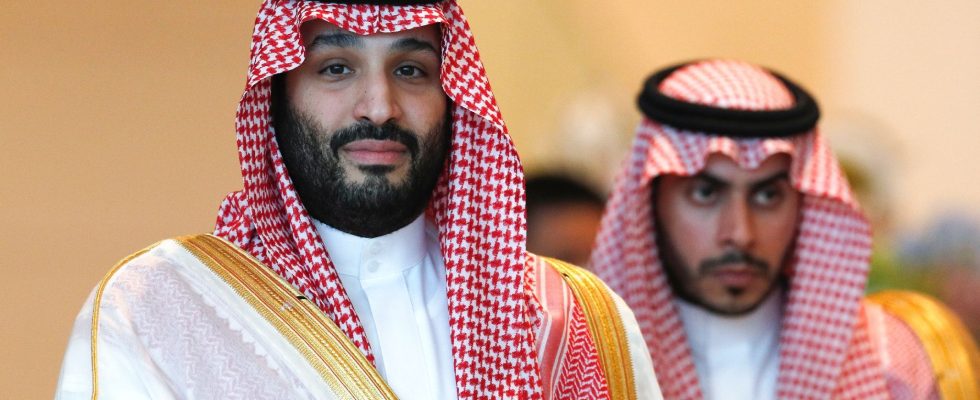Enough to make a stir in the scientific world. According the Spanish generalist daily El País, Saudi Arabia has quietly bribed dozens of top scientists, including many Spaniards, to sign “false declarations” stating that their first employer was a Saudi university. These contracts, artificial, allow these establishments to gain places in the international rankings, and in particular that of Shanghai. At least eleven Spanish researchers, six Britons, six Italians, five Germans and twelve Chinese are concerned, but no French, ensures the daily.
THE shanghai ranking, produced by researchers at Jiao Tong University (China), is widely criticized – especially in France – but remains one of the most influential in the world. Every year, universities try to climb its ladder in order to gain visibility, attract students, funding, and even increase their tuition fees. The factors taken into account are, among others, the number of Nobel laureates employed by the university, but also the number of professors listed in the Clarivate database of 7,000 researchers whose scientific publications are the most cited in the world. A “loophole” skillfully exploited by Saudi Arabia, which offered gold bridges to several researchers so that they fictitiously change employers in Clarivate while continuing to work at their university.
70,000 euros per year, first class and luxury hotel
The chemist Mira Petrovic, a scientist from the Catalan Institute for Research and Advanced Studies (Icrea) – 270 scientific publications to his credit and 25,186 citationsaccording to the Research Gate platform -, was thus offered 70,000 euros per year if it indicated in Clarivate that his main employer was King Saud University (Ryad). The proposed contract required him to travel only a few days a year to Saudi Arabia. An “indecent” offer which she refused, she specifies, but which has seduced many scientists with less integrity.
And the Spanish daily to quote the chemist Rafael Luque – 976 publications, 36,472 citations – who declared in Clarivate, in 2019, that he was a researcher at King Saud University, without mentioning a word to his real employer, the University of Cordoba. When she found out, the Spanish institution not only fired him, but banned him from signing a new employment contract for the next thirteen years. The severity of the sanction can be explained with regard to the consequences of the change of affiliation: the University of Cordoba lost some 150 places in the Shanghai rankings, falling from 684th place to 837th, according to an investigation by the Siris firm.
The chemist Damià Barceló – 898 publications, 62,932 citations – had also registered in Clarivate as a researcher at King Saud University, when he was director of Icrea. Asked by El País, he assures that his contract provided for analyzes of the water of the Saudi cultures. “The solution to be able to carry out these studies was to make this declaration, it was the sine qua non condition without which I could not take samples in Saudi Arabia”, he defends himself. The chemist, now 69, admits he only traveled to Saudi Arabia once a year to collect his samples and give lectures, but denies receiving 70,000 euros a year. While he does not reveal the amount of his contract, he indicates that it covered the costs of his “extremely expensive” experiences, included nights in luxury hotels, first class travel and up to 2,000 euros per conference.
Saudi universities among the top 150
Luis Martínez, Professor of Computer Science at the University of Jaén – 536 publications, 23,126 citations – explains for his part that he began to receive offers from Arab universities as soon as he joined the famous list of the 7,000 most cited researchers. If he rejected them for five years, he finally gave in in 2022, when he learned that the Spanish state would not fund his research projects and that King Saud University offered him 60,000 euros per year. . “I said yes for survival,” he insists.
His university discovered the deception when the Clarivate list was published. She immediately summoned the researcher to tell him of her lack of ethics, even though her full-time contract includes an exclusivity clause. The institution is considering legal action. She should still lose, too, some 150 places in the next Shanghai ranking, specifies the Siris report, who is also concerned about the opacity of the sums paid and points out that while some researchers can use them to buy scientific equipment, others could as well afford second homes. Meanwhile, Saudi Arabia declares 112 researchers in the list of the most cited scientists in the world, five times more than Germany, and its universities of King Saud and King Abdulaziz both rise between 101st and 150th place in the 2022 Shanghai ranking.
In addition to the unethical shenanigans of the Islamic dictatorship, the case reveals another well-known problem in the world of research, that of the race for publication which pushes many researchers to favor quantity over quality. In France, the number of publications counts, at least in part, in the Sigaps ranking, used to determine part of the state subsidies allocated to universities and certain private establishments. Many specialists in scientific ethics have called for in-depth reform of the system.
